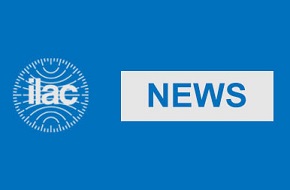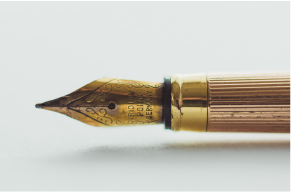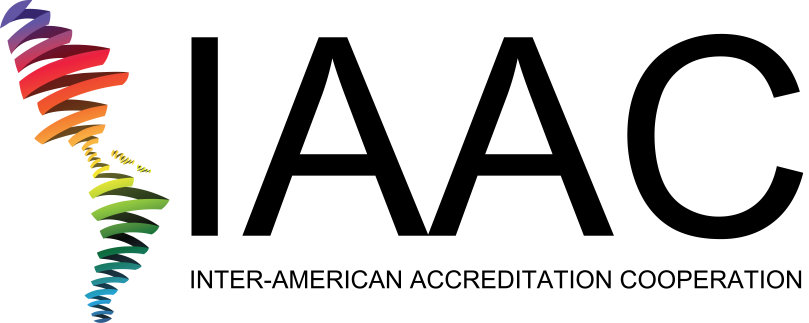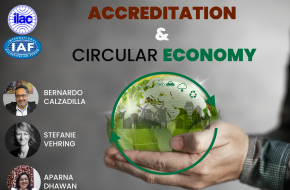
June 9th 2023 marks World Accreditation Day (#WAD2023), a global initiative established by ILAC and IAF to promote the value of accreditation.
IAF and ILAC celebrate World Accreditation Day (WAD) with our members, partners, stakeholders and users of conformity assessment. The theme for WAD 2023 is:
Accreditation: Supporting the Future of Global Trade
This theme will showcase how accreditation and accredited conformity assessment activities support the ongoing global supply chain restructuring that continues to be a source of trade normalization as organisations seek new markets and investment opportunities to build resilient and flexible supply chains. This is likely to reinforce long-term growth in multilateral and bilateral trade relationships and augment the value of the ILAC/IAF mutual recognition arrangements in promoting greater supply chain efficiency and resilience.
This year’s theme, Accreditation: Supporting the Future of Global Trade also focuses on how accreditation supports the United Nations Sustainable Development Goals (SDGs) 1, 2, 3, 5, 8, 9, 10, 14, and 17.
IAF and ILAC will be releasing a joint statement by the IAF and ILAC Chairs, a brochure and a video along with the already published poster for use in celebrations. In addition, a virtual event will be hosted by IAF and ILAC on 9th June. Case studies and research on benefits that accreditation can provide in support of this theme are available on the Public Sector Assurance and Business Benefits websites.
We encourage everyone to celebrate with us online using the hashtag #WAD2023, to attend our virtual event and to contact your local accreditation body for further details on local media and online seminars and programs they may be organising. A list of IAF Members is available here, and a list of ILAC Members is available here.

The Republic of Kazakhstan is a young state in Central Asia with a little over 30 years of independent history. Located in the very center of the Eurasian continent, surrounded by major geopolitical players, our country strives to constantly improve its competitiveness, and above all, in the economy and trade. Our state considers accreditation as one of the main tools for achieving success. National Center for Accreditation (NCA) – a state accreditation body under the Ministry of Trade and Integration of Kazakhstan – does not stop at assessing the already traditional for the country, scopes of accreditation, and is constantly introducing new schemes into its work. One of them is biobanking.
The term “Biobank” came into use by scientists and entrepreneurs in Kazakhstan not so long ago. The development in Kazakhstan of such promising areas such as plant and livestock breeding, transplantation and transfusion, treatment of genetically determined diseases and many others turned out to be impossible without biobanks – specialized repositories for the organized collection, labeling, processing, storage and analysis of samples of biological materials and related data for scientific and biomedical research.
Not every repository of biological materials can be called a biobank. Specially selected collections of plants and animals or their biomaterials, including samples taken from humans, can be used in research and clinical care only under sufficiently stringent conditions for any manipulation with them.
The scope of biobanking in Kazakhstan has changed a lot over the past thirty years. It began with small, mostly university repositories that were created for research and specific projects needs. Gradually, institutional and state-supported repositories, commercial biological repositories, population and virtual biobanks have developed.
However, a real breakthrough in the history of biobanking began with the development and adoption of the international standard ISO 20387 “Biotechnology — Biobanking — General requirements for biobanking”. The standard was created to build confidence in biobanking. It establishes requirements that allows biobanks to demonstrate high competence in their work and the ability to provide biological material and the related data of an appropriate quality, which in turn, will ensure a high level of research, development or services.
Since 2020, the National Center for Accreditation of Kazakhstan has been working actively on the implementation of biobank accreditation schemes. As part of the promotion of the ISO 20387 standard, NCA specialists have held webinars with the involvement of a foreign lecturer for the target audience of scientists, animal breeders and medical workers. As well as training for biobank staff and seminars for university teachers and students in order to build the capacity of technical experts.
The National Center for Accreditation of Kazakhstan has published a video and posts, articles and interviews are regularly released on the official website and social networks on the development of biobanking.
NCA specialists have received theoretical and practical training and visited accredited biobanks in countries such as South Korea and India. On the basis of the skills and knowledge acquired, three specialists have been awarded the title of expert bio-banking auditors. NCA’s procedural documents have been amended to ensure that we are ready to accept applications for the initial accreditation of biobanks.
Biobanks in Kazakhstan have shown particular interest in the standard. Today, about 2-3 potential applicants in our country are preparing for accreditation. Accreditation is seen as a good motivation for biobank staff. Accreditation will contribute to positioning the biobank as an organization that complies with all the requirements established by the standard for proper record keeping, clinical and diagnostic control, implementation of appropriate management of material resources and personnel, maintaining feedback with consumers, monitoring quality, ensuring the effectiveness of services provided and taking into account the opinions of patients.

As a result of the recent ILAC Arrangement Council ballot, the continuation of the recognition for the Arab Accreditation Cooperation (ARAC) as a recognised regional cooperation body of ILAC has been confirmed. The endorsed AMC recommendation is shown below:
The ILAC AMC recommends that the scope of recognition of the ARAC MLA to the ILAC MRA be:
It is recommended that the next re-evaluation of ARAC is scheduled to begin no later than September 2024.
Information on the recognised regions including ARAC to the ILAC MRA is available from https://ilac.org/ilac-mra-and-signatories/recognised-regional-cooperation-bodies/
We look forward to continuing to work with our colleagues from ARAC.

As a result of the recent ILAC Arrangement Council ballot, The Southern African Development Community Cooperation in Accreditation (SADCA) has been granted recognition as regional cooperation body of ILAC. The endorsed AMC recommendation is shown below:
The ILAC AMC recommends that recognition of the SADCA MRA to the ILAC MRA be granted:
It is recommended that the first re-evaluation of SADCA is scheduled to begin no later than August 2025.
Information on the recognised regions now including SADCA to the ILAC MRA is available from https://ilac.org/ilac-mra-and-signatories/recognised-regional-cooperation-bodies/
We extend our congratulations to SADCA and look forward to continuing to work with our colleagues from SADCA.

The signatory status of Oficina Guatemalteca de Acreditación (OGA), Guatemala, to the ILAC MRA was suspended on 16 March 2023. This suspension to the ILAC MRA is a result of the suspension of OGA from the IAAC MLA and in accordance with IAF/ILAC A2 Annex 7.

The signatory status of Korea Laboratory Accreditation Scheme (KOLAS), Korea, to the ILAC MRA has been extended to include Proficiency Testing Providers (ISO/IEC 17043) and Reference Materials Producers ISO (17034).
The full list of signatories to the ILAC MRA is available from https://ilac.org/signatory-search/ .

As a result of the recent ILAC Arrangement Council ballot, the continuation of the recognition for the Inter American Accreditation Cooperation (IAAC) as a recognised regional cooperation body of ILAC has been confirmed. The endorsed AMC recommendation is shown below:
The ILAC AMC recommends that the scope of recognition of the IAAC MLA to the ILAC MRA be:
It is recommended that the next re-evaluation of IAAC is scheduled to begin no later than September 2025.
Information on the recognised regions including IAAC to the ILAC MRA is available from https://ilac.org/ilac-mra-and-signatories/recognised-regional-cooperation-bodies/
We look forward to continuing to work with our colleagues from IAAC.

The JCGM Member Organizations recently approved the document GUM-6 (formerly numbered JCGM 103) Guide to the expression of uncertainty in measurement‐Developing and using measurement models. It is available from the BIPM website: https://www.bipm.org/en/publications/guides/
It is also accessible via the JCGM link on the ILAC website: https://ilac.org/publications-and-resources/non-ilac-publications/

The signatory status of Tunisian Accreditation Council (TUNAC), Tunisia, to the ILAC MRA has been extended to include Medical Testing (ISO 15189).
The full list of signatories to the ILAC MRA is available from https://ilac.org/signatory-search/ .

IAF and ILAC have released the fourth episode of our Accreditation Matters podcast, which features discussions with international experts on important matters to the international quality infrastructure community and the way that accreditation supports regulators, global trade and consumers.
In this episode, Dr. Aparna Dhawan interviews Dr. Bernardo Calzadilla-Sarmiento and Dr. Stefanie Vehring on the circular economy and how accreditation can support industry in the transition to more sustainable products and processes as well as the importance of accreditation in the verification of circular economy claims.
Listen to the episode now on Spotify, Apple Podcast, Google Podcasts or Amazon Music, or watch it on YouTube.